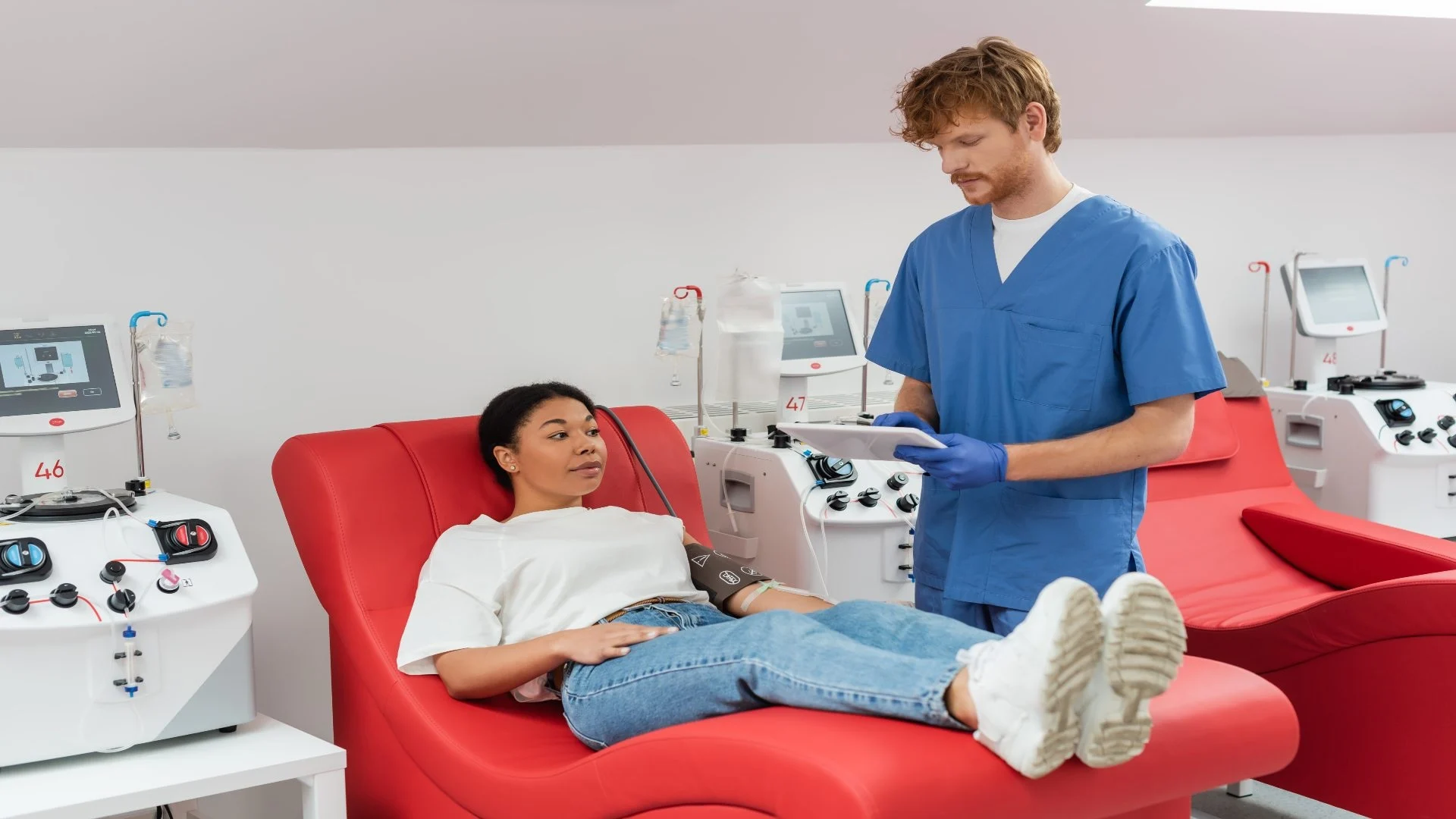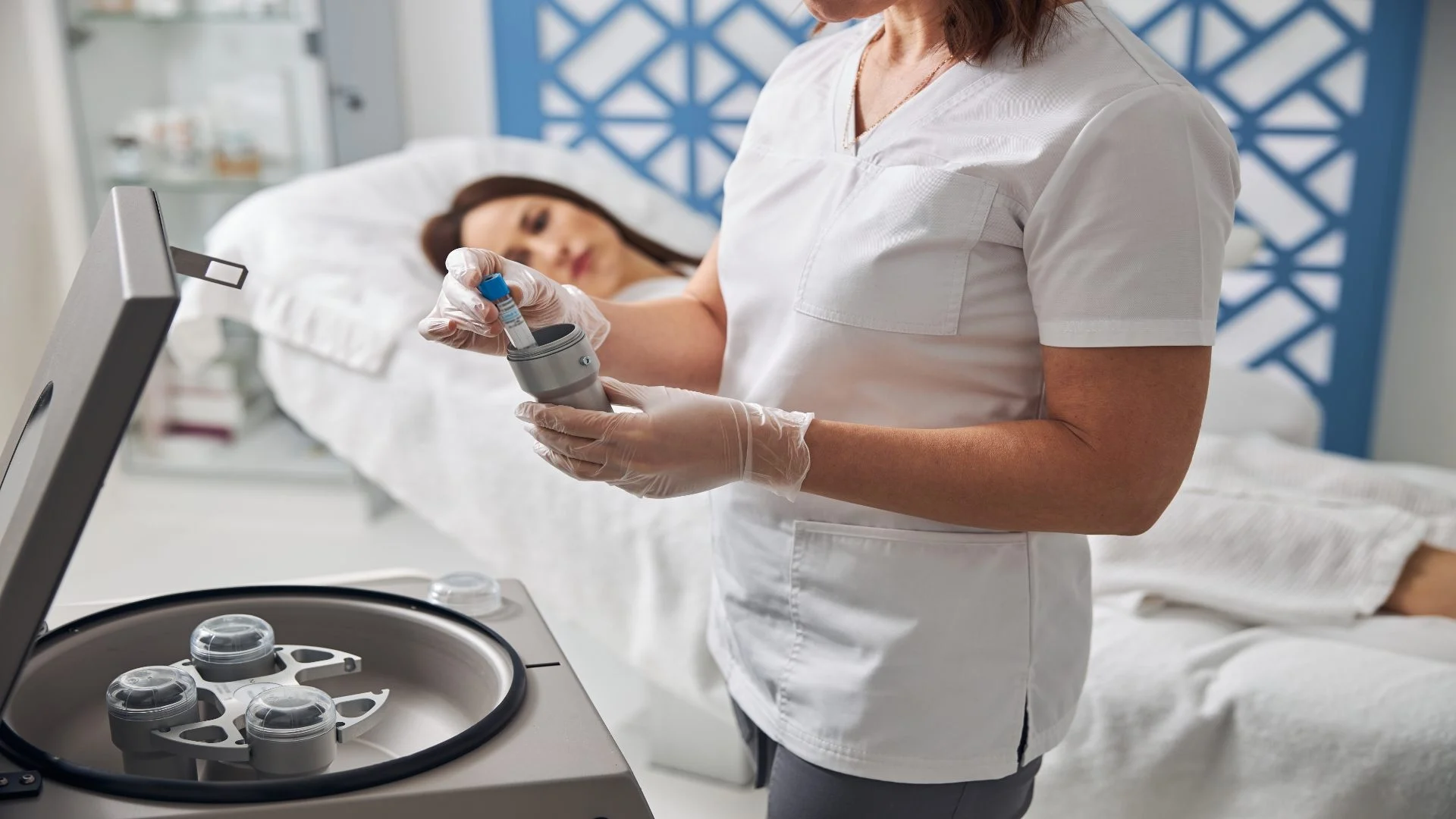Drug and Alcohol
How Long Does Alcohol Detox Take? Understanding the Timeline and What to Expect

Wondering how long alcohol detox takes? Learn the stages, symptoms, and support options. The Edge Treatment Center is here to help you recover effectively.
What are the common withdrawal symptoms during alcohol detox?
Common symptoms include nausea, headaches, tremors, and mood swings. Emotional changes like anxiety and irritability are also typical as your body adjusts to the absence of alcohol. Professional guidance helps manage these symptoms effectively.
How does age affect the detox process?
Age can influence the detoxification process due to differences in metabolic rate. Younger individuals often metabolize substances more quickly, whereas older adults may require more time for their bodies to adjust. Tailored care considers these factors to provide appropriate support.
Can I maintain my daily life while detoxing?
Outpatient detox allows for maintaining daily responsibilities, but it requires a solid support system. In contrast, inpatient detox provides structured and uninterrupted care, minimizing external stressors. Choosing the right option depends on your situation and needs.
What role does nutrition play in alcohol detox?
Nutrition plays a pivotal role in replenishing deficient nutrients and aiding recovery. A balanced diet supports liver function, reduces the severity of withdrawal symptoms, and enhances overall well-being during the detoxification process. Incorporating holistic practices can further support body-mind balance.
How can I cope with cravings during detox?
Coping strategies include engaging in physical activities, attending support groups, and developing new hobbies. Counseling and behavioral therapies are invaluable for equipping yourself with tools to manage cravings and maintain progress in recovery.
Alcohol detoxification is a crucial first step in recovering from alcohol dependency. During this process, the body rids itself of toxins accumulated from excessive alcohol consumption. If you're wondering how long alcohol detox takes, this guide is for you.
We delve into the detox process, what symptoms to expect, and the importance of seeking professional support to navigate this challenging yet essential journey. At The Edge Treatment Center, we offer personalized treatment plans to help individuals reclaim their lives from addiction and mental health issues.
The Process of Detoxing From Alcohol

Detoxification involves abstaining from alcohol to enable the body to eliminate toxins. The duration can vary significantly, often depending on factors such as the level of alcohol dependency and individual health conditions. Symptoms of alcohol detox can range from mild discomfort to more severe reactions.
Medical supervision is sometimes necessary to ensure the process is handled safely and effectively. Various personal factors influence a typical detox timeline, but understanding what to expect can help you prepare.
Symptoms During Alcohol Detox
During detox, the body reacts to the absence of alcohol with a range of physical and psychological symptoms that can vary in intensity.
Mild to Moderate Symptoms
As the body begins to eliminate alcohol, individuals often experience mild to moderate withdrawal symptoms. These can include anxiety, restlessness, sweating, shaking, nausea, headaches, and trouble sleeping. These symptoms are a result of the central nervous system adjusting after prolonged alcohol use, and while uncomfortable, they are expected in the early stages of detox.
Severe Withdrawal Symptoms
In some cases, withdrawal can take a more dangerous turn. Symptoms like seizures, hallucinations, and delirium tremens (DTs) can develop, especially in individuals with a long history of heavy drinking. These severe reactions can be life-threatening and require immediate medical attention.
Importance of Professional Support
Professional support during alcohol detox is invaluable. It provides critical medical care and emotional support, vital to managing withdrawal symptoms safely. A personalized treatment plan, crafted by experienced professionals, addresses unique needs and ensures a safe detoxification process.
Professional guidance also mitigates potential complications, offering peace of mind and a structured path to recovery. At The Edge Treatment Center, we prioritize your safety and well-being, equipping you with the tools needed to rebuild your life free of alcohol dependency.
How Long Does Alcohol Detox Take?
Understanding the timeline of alcohol detox is essential for individuals preparing for this phase of recovery. The duration of detoxification varies based on individual factors, such as dependency level and overall health.
Below is an outline of the typical phases;
Initial Withdrawal Symptoms Timeline: 6 to 12 hours after the last drink. Symptoms: Anxiety, tremors, headache.s The initial withdrawal phase begins quickly after the last drink. These symptoms, while unsettling, are manageable with professional support.
Peak Withdrawal Period Timeline: 24 to 72 hours after the last drink. Symptoms: Confusion, high blood pressure, irritability. This is when symptoms peak. Medical supervision is often needed to manage and reduce complications.
Post-acute Withdrawal Symptoms (PAWS) Duration: Weeks to months Symptoms: Fatigue, mood swings, trouble sleeping. PAWS requires ongoing care. At The Edge Treatment Center, we offer support systems to help manage these lingering symptoms.
Alcohol Detox Timeline: What to Expect
Understanding the phases of detoxification helps with preparation and management. At The Edge Treatment Center, we provide comprehensive support to guide you through each stage of recovery.

We’re Here To Help You Find Your Way
Would you like more information about mental health or drug addiction? Reach out today.
The Stages of Alcohol Detox
Stage 1: Acute Withdrawal begins within hours of the last drink and lasts up to 72 hours. Symptoms include anxiety, irritability, nausea, and in some cases, seizures. Medical supervision is crucial during this phase.
Stage 2: Early Abstinence Symptoms lessen, but cravings, mood swings, and sleep issues may persist. This stage can last several weeks. Counseling and support are key.
Stage 3: Protracted Withdrawal Symptoms like occasional cravings and mood swings may continue for months. Continued therapy and support are essential for long-term recovery.
Factors Influencing Detox Duration
Severity of Alcohol Use: Heavier and prolonged drinking leads to a longer and more intense detox process.
Individual Health Status Co-occurring conditions like depression or liver damage can extend detox duration and complexity.
Age and Metabolism: Younger individuals may detox faster due to higher metabolic rates.
Support System: A strong support network can ease detox and promote treatment adherence.
Previous Detox Attempts: Repeated withdrawals can increase severity due to the "kindling effect," requiring more intensive medical management.
What to Expect During Alcohol Detox
Physical Symptoms: Nausea, headaches, and tremors vary in intensity but are part of the body's adjustment to sobriety.
Emotional Symptoms: Mood swings, anxiety, and irritability are common and manageable with counseling and support.
Medical Supervision is essential for managing complications and improving comfort. Treatment facilities provide medications and a safe environment.
Medical Support and Treatment Options

Inpatient vs. Outpatient Detox: Choosing between inpatient and outpatient detox depends on the severity of the addiction and the individual’s overall health.
Inpatient detox offers 24/7 medical supervision and a structured, controlled environment, making it ideal for individuals with severe alcohol dependency or those at risk for acute withdrawal symptoms.
This level of care ensures immediate intervention in case of complications and limits exposure to external triggers.
Outpatient detox, on the other hand, allows individuals to remain at home while attending scheduled treatment sessions. It’s better suited for those with mild to moderate dependency who have a stable home environment and a strong support network.
While it offers more flexibility, outpatient detox requires a high level of personal commitment and access to emergency care if needed.
Pharmacological Interventions: Medication plays a critical role in managing withdrawal symptoms and preventing complications. Benzodiazepines are commonly prescribed to reduce anxiety, prevent seizures, and promote sleep.
Anticonvulsants may also be used to manage the risk of seizures. In addition, nutritional supplements—especially thiamine (vitamin B1)—help correct deficiencies and prevent conditions like Wernicke’s encephalopathy, a severe alcohol-related brain disorder.
Therapeutic Support: Detox is not just physical; it’s deeply psychological. Therapeutic support, such as cognitive behavioral therapy (CBT), one-on-one counseling, and group therapy, helps individuals understand the root causes of their alcohol use and develop healthier coping mechanisms. Support groups further build community and accountability, reinforcing the recovery journey.
Nutritional and Holistic Approaches: Holistic healing is a powerful complement to medical care. A balanced diet supports liver function and overall recovery.
Practices like yoga and meditation can enhance mental clarity and emotional stability, while alternative therapies, such as acupuncture and massage, can help reduce stress and promote physical comfort during detoxification.
Together, these methods create a foundation for sustained wellness and recovery.

We’ll Lead You to New Heights
Do you have more questions about mental health or drug addiction? Reach out.
Why Choose The Edge Treatment Center for Alcohol Detox
Personalized Treatment Plans: At The Edge Treatment Center, we understand that each individual’s recovery journey is unique. That’s why we offer customized treatment plans tailored to your specific needs. Our team conducts thorough assessments to determine the most effective interventions tailored to your particular situation. This targeted care maximizes the likelihood of successful detox and long-term recovery.
Comprehensive Support Services: Our multifaceted approach addresses every aspect of your recovery:
Medical Care: 24/7 supervision by medical professionals to manage withdrawal and health issues
Counseling: Emotional support and guidance during detox and beyond
Therapy: Access to individual, group, and family therapy to promote behavioral change and healing
Alcohol Detox Taking Over Your Life? We’ll Help You Take It Back

Alcohol detox can be overwhelming, but you don’t have to face it alone. The Edge Treatment Center offers personalized, medically supervised detoxification and long-term recovery support tailored to your unique needs and journey.
Whether you're just beginning or struggling midway, our team is here to guide you every step of the way. Reach out today and take the first step toward a healthier, alcohol-free life.

We’re Here To Help You Find Your Way
If you or a loved one is struggling with addiction, there is hope. Our team can guide you on your journey to recovery. Call us today.
Written by
The Edge Treatment Center
Reviewed by
 Jeremy Arzt
Jeremy ArztChief Clinical Officer
Drug and Alcohol
August 11, 2025
